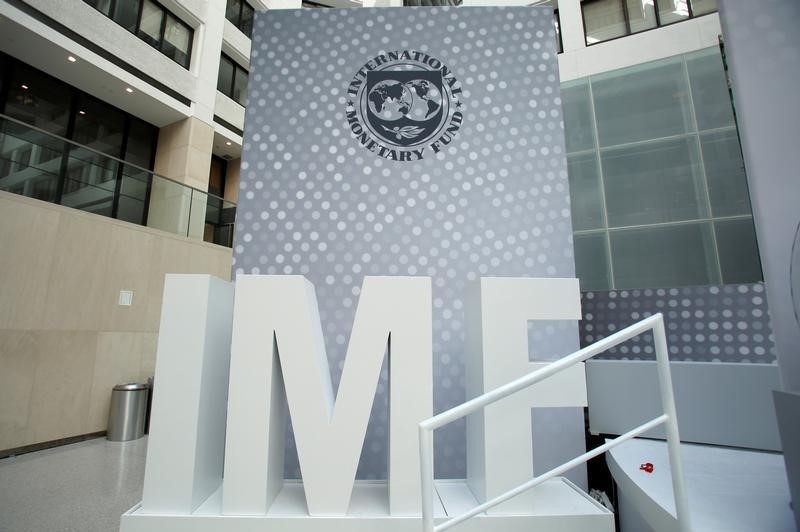By Scott Kanowsky
Investing.com -- The International Monetary Fund has lifted its growth projections for the world economy this year, citing the positive impact from the recovery of China's economy from strict COVID-19 measures and signs of easing inflation pressures.
In a report, the IMF said it now expects global growth will slow to 2.9% in 2023 from 3.4% in 2022. The organization had previously estimated in October that expansion this year would come in at 2.7% and warned that the world economy could slip into a recession.
Global growth in 2024 is also seen at 3.1%. However, this is a tenth of a percentage point below its prior forecast.
IMF chief economist Pierre-Olivier Gourinchas said in a statement that the world economy has proven "surprisingly resilient" thanks to strong labor markets, household consumption, and a better-than-expected adaptation to the energy crisis in Europe.
"Inflation, too, showed improvement, with overall measures now decreasing in most countries — even if core inflation, which excludes more volatile energy and food prices, has yet to peak in many countries," Gourinchas added. "Elsewhere, China’s sudden re-opening paves the way for a rapid rebound in activity."
Inflation is expected to fall from 8.8% last year to 6.6% in 2023 and 4.3% in 2024 - although this would mean that prices would still remain above pre-pandemic levels. Meanwhile, recent interest rate hikes by central banks around the world to quell this soaring inflation are expected to weigh on activity in advanced economies.
U.S. growth projections for 2023 are now set at 1.4%, down from an estimated 2% in 2022, as Federal Reserve policy tightening works its way through the world's largest economy. But the slowdown is better than the previously anticipated mark of 1%.
Conditions in the euro zone will be "more challenging" than in the U.S., the IMF said, despite a mild winter that has kept the energy crisis somewhat at bay and broad fiscal support. The European Central Bank's own interest rate rises, as well as an uptick in energy import prices, will lead to growth in the currency area decelerating sharply to 0.7% this year from a projected 3.5% in 2022. In October, the IMF saw euro zone growth in 2023 at 0.5%.
Elsewhere, the IMF expects the U.K. economy to contract by 0.6% in 2023. This would represent a 0.9 percentage point decrease compared to the October projections, which the IMF said reflects how much household budgets are being hit by tighter fiscal and monetary policies, difficult financial conditions, and high energy retail prices.
